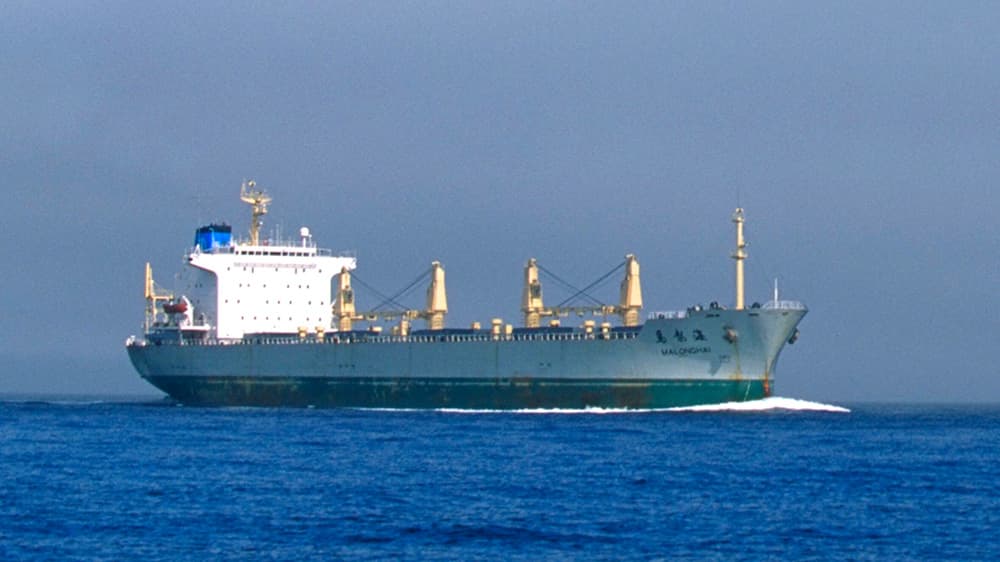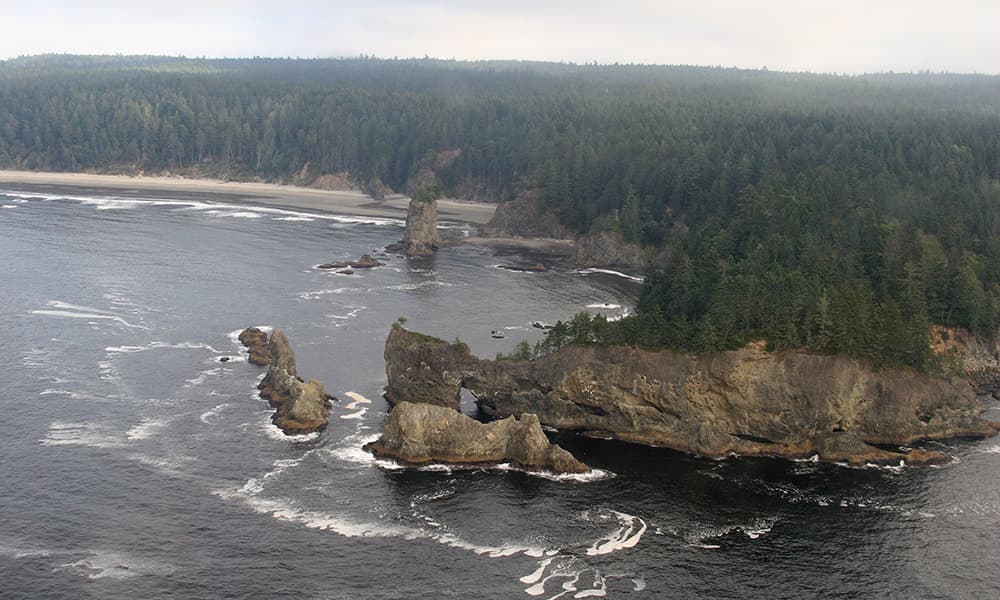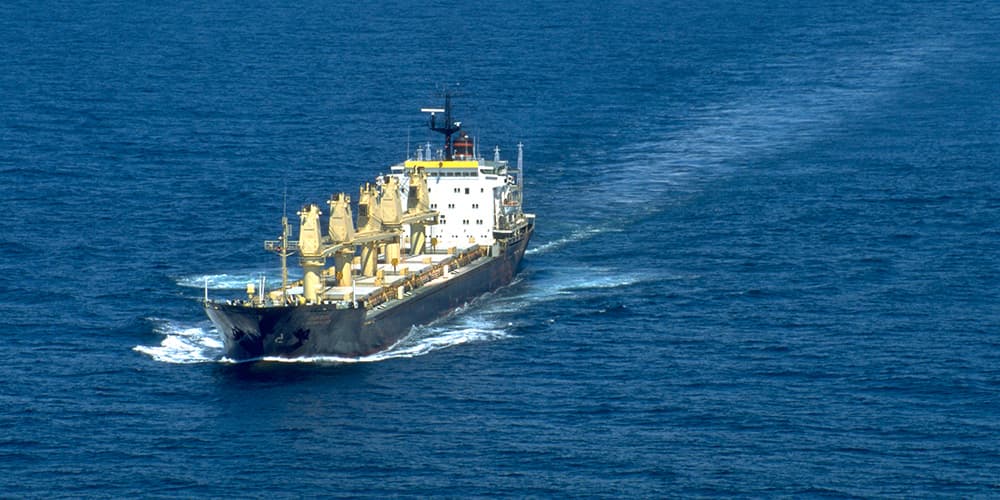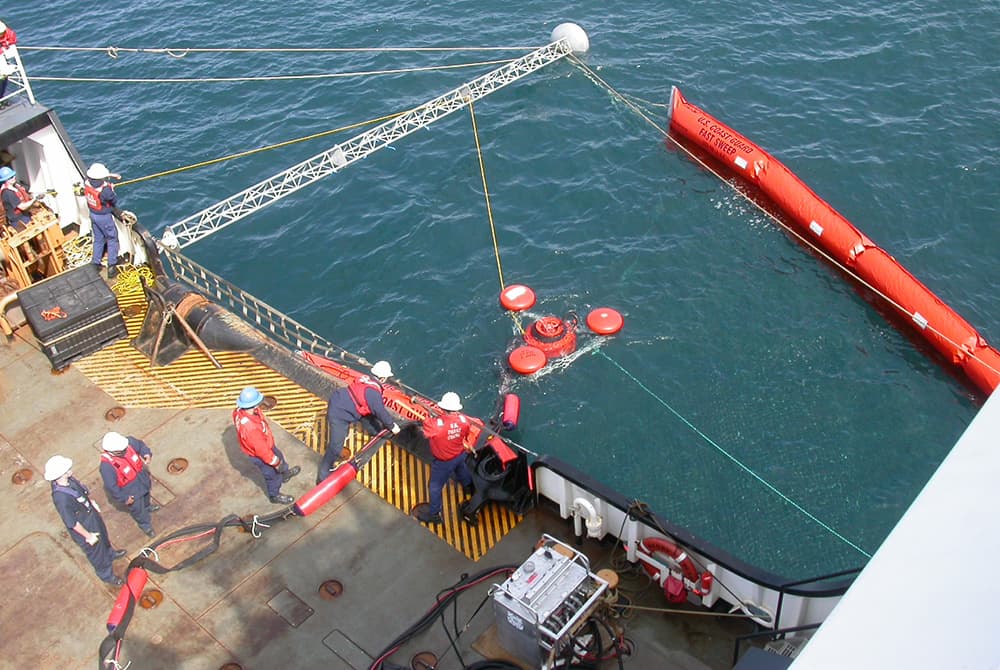Oil Spill and Vessel Incident Response

The potential release of oil or other hazardous material from a marine accident is widely seen as the greatest threat to sanctuary resources and qualities. Prevention of spills is therefore one of the sanctuary’s highest priorities. As a steward of these vitally important natural resources, Olympic Coast National Marine Sanctuary collaborates with other agencies and user groups to reduce the potential for oil spills and improve contingency planning for spill response.
Area To Be Avoided

The Olympic Coast Area-To-Be-Avoided (ATBA) is a voluntary measure that directs large vessel traffic to stay approximately 25 miles offshore of the ecologically-sensitive and dangerous operating environment of the rugged Olympic Coast.
Vessel Traffic Monitoring

Compliance with the Area-To-Be-Avoided is monitored in a cooperative program jointly operated by Canadian Coast Guard and the United States Coast Guard. Vessel tracking data is provided to the sanctuary, compiled and analyzed to detect trends in compliance and to identify vessels that enter the ATBA.
Regional Management and Coordination

Olympic Coast National Marine Sanctuary participates with the US Coast Guard, state of Washington, Hoh Tribe, Makah Tribe, Quileute Tribe,and Quinault Indian Nation on regional management and coordination of oil spill prevention and response.

